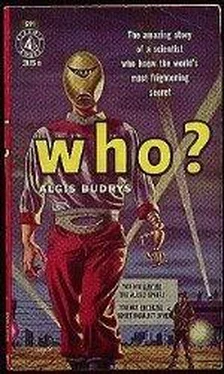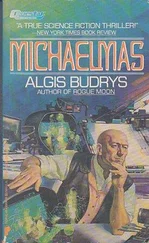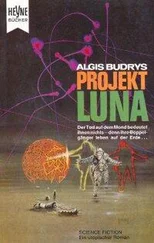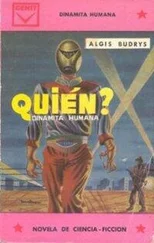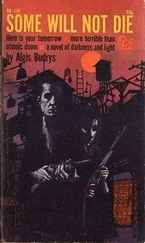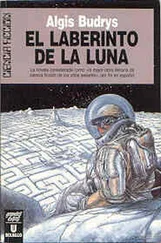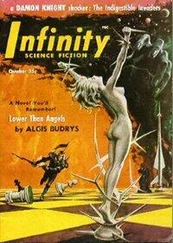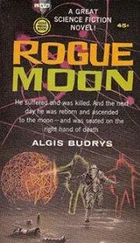“Frankly,” Rogers stumbled on, “I don’t think they quite knew how to say it, so they chose me to do it, thinking I knew you best.” He shrugged wryly. “But I don’t know you.”
“Nobody does,” the man said. “What’s the ANG want?”
“Well, the point I was trying to make was that I probably won’t phrase this properly. I don’t want my fumbling to prejudice your decision.”
The man made an impatient sound. “Get to it, man.” Then, with infinite gentleness, he slipped the gear into place and reached for the next.
“Well — you know things all over the world’re getting tense again.”
“Yes.” He wriggled further under the tractor, reached over with his right hand, and helped his left locate the second gear exactly in place. “What’s that got to do with me?” He took the last gear, mounted it, and forced the tight retaining slide into position, moving the closely machined part only as firmly as needed and no more. He scooped the nuts out of the gearbox cover and began hand-tightening it back in place.
“Dr. Martino-the ANG has re-instituted the K- Eighty-Eight program. They’d like you to work on it.”
The man under the tractor reached for his wrench, and his fingers slipped on the oily metal. He twisted around and reached with his left arm. There was a faint click as his fingers closed over it firmly, and then he turned back and began taking up the gearbox lugs.
Rogers waited, and after a while the man said, “So Besser failed.”
“I wouldn’t know about that, Dr. Martino.”
“He must have. I’m sorry for him — he really believed he was right. It’s funny with scientists, you know — they’re supposed to be objective and detached, and formulate theories according to the evidence. But a man’s baby is a man’s baby, and sometimes they feel it very badly when an idea of theirs is proved wrong.” He finished tightening the cover, and screwed the drain plug in firmly. He crawled out from under the tractor, put the wrench down, and carefully rolled up the tarpaulin. “Well, that’s done,” he said. He put the tarpaulin under his arm, bent to pick up the can of old oil, and went over to the work bench, where he put the tools down and carefully poured the can out into a waste drum.
He took a new half-gallon can from a rack, punched a pouring spout into its top, and brought it back to the tractor, where he took off the filler cap and up-ended the can over the transmission. “Now I can get that field done tomorrow. The ground’s got to be loosened up, you know, or it’ll cake and get crusty.”
“Aren’t you going to say anything about whether you’ll accept the offer or not?”
The man lifted the pouring spout of the filler and replaced the cap. He put the empty can down and climbed up into the driver’s saddle, where he began going carefully through the gears, testing them for engagement and smoothness, without looking at Rogers until he was satisfied he’d done a good job. Then he turned his head. “They decide I was Martino?”
“I think,” Rogers said slowly, “they simply needed someone very badly. They felt, I think, that even if you weren’t Lucas Martino, you’d have been trained to replace him. It — seems to be very important to them to get the K- Eighty-Eight program working again as quickly as possible. They have plenty of competent technicians. But geniuses don’t appear often.”
The man climbed down off the tractor, picked up the empty oil can, and took it over to the bench. His arm bandage was black with floor dust, and he pulled a five-gallon can out from under the bench, uncapped it, and began taking the bandage off. The sharp smell of gasoline burned into Rogers’ nostrils.
“I was wonderin’ how they’d come to decide for sure. I can’t see any way of doing it.” He dropped the bandage into the gasoline. Plunging both arms into the can, he washed the bandage clean and hung it over a nail to dry.
“You’d be watched very closely, of course. And probably kept under guard.”
“I wouldn’t mind. I don’t mind your people being around here all of the time.” He took a tin cup out of the bottom of the gasoline can and sluiced down his arm, twisting and turning it to make sure every working part was washed out thoroughly. He took a stiff, fine-bristled brush from a rack and began cleaning his arm with methodical care, following an obviously old routine. Rogers watched him, wondering, once again, just what kind of brain lived behind that mask and was neither angry, nor bitter, nor triumphant that they’d had to come to him at last. “But I can’t do it,” the man said. He picked up an oil can and began lubricating his arm.
“Why not?” Rogers thought he saw the man’s composure wavering.
The man shrugged uncomfortably. “I can’t do that stuff any more.” The bandage was dry, and he wrapped his arm again. He didn’t meet Rogers’ eyes.
“What’re you ashamed of?” Rogers asked.
The man walked over to the tractor, as though he thought it was safer there.
“What’s the matter, Martino?”
The man put his left arm over the tractor’s hood and stood facing out through the open barn doors. “It’s a pretty good life, here. I work my land, get it in shape; I fix up the place I guess you know what it was like when I moved in. It’s been a lot of work. A lot of rebuildin’. Ten more years and I’ll have it right in the shape I want.”
“You’ll be dead.”
“I know. I don’t care. I don’t think about it. The thing is — ” His hand beat lightly on the tractor’s hood. “The thing is, I’m working all the time. A farm — everything on a farm — is so close to the edge between growing and rotting. You work the land, you grow crops, and when you do that, you’re robbing the land. You’re going to fertilize, and irrigate, and lime, and drain, but the land doesn’t know that. It’s got to get back what you took out of it. Your fenceposts rot, your building foundations crumble, the rain comes down and your paint peels, your crops get beaten down and start to rot — you’ve got to work hard, every day, all day, just to stay a little bit better than even. You get up in the morning, and you have to make up for what’s happened during the night. You can’t do anything else. You don’t think about anything else. Now you want me to go to work on the K-Eighty-Eight again.” Suddenly, his hand beat down on the tractor, and the barn echoed to the clang of metal. His voice was agonized. “I’m not a physicist. I’m a farmer. I can’t do that stuff any more!”
Rogers took a slow breath. “All right — I’ll go back and tell them.”
The man was quiet again. “What’re you going to do after that? Your men going to keep watching me?”
Rogers nodded. “It has to be that way. I’ll see you to your grave. I’m sorry.”
The man shrugged. “I’m used to it. I haven’t got anything that people watching is going to hurt.”
No, Rogers thought, you’re harmless now. And I’m watching you, so I’m useless. I wonder if I’ll end up living on a farm down the road?
Or is it just that you don’t dare take the chance of going on the K-Eighty-Eight project? Did they risk it, after all, with somebody who couldn’t fool us there?
Rogers’ mouth twisted. One more — once more and for the thousandth time, he’d raised the old, pointless question. Something bubbled through his blood, and he shivered slightly. I’ll be an old man, he thought, and I’ll always think I knew, but I’ll never get an answer.
“Martino,” he blurted. “Are you Martino?”
The man moved his head, and the metal glowed with a dull nimbus under its film of oil. He said nothing for a moment, his head moving from side to side as though he were looking for something lost. Then he tightened his grip on the tractor, and his shoulders came back. For a moment his voice had depth in it, as though he remembered something difficult and prideful he had done in his youth. “No.”
Читать дальше
